Safeguarding Ireland has called for greater awareness of adult abuse among older people – including greater understanding of the link between psychological and financial abuse.
The call comes following today’s launch of the HSE National Safeguarding Office (NSO) Annual Report 2021 – which reported 11,640 cases of alleged abuse an increase of 10% on 2020.
A focus on adult abuse is also being highlighted as World Elder Abuse Awareness Day takes place on Wednesday June 15th.
The Safeguarding Office Report found that the adults under 65 had the highest proportion of psychological and physical abuse alleged, while financial abuse and neglect were alleged to a greater extent in adults over 80 years.
Read the HSE 2021 Report here.
For the first time the HSE NSO Annual Report included a record of cases of two types of abuse combined, and 30% of cases reported by people aged 80+ involved a combination of psychological and financial abuse, while this was 10% among 18-64 year olds.
Safeguarding Ireland Chairperson Patricia Rickard-Clarke said this was an area of particular concern and caused by an underlying attitude which should change.
“Safeguarding Ireland welcomes the HSE National Safeguarding Office 2021 Report as an important part of addressing adult abuse in Ireland.
“The strong association identified between psychological and financial abuse among those over 80 stems from an all too common attitude which does not respect older people’s rights, independence and autonomy.
“What starts as phycological abuse often becomes financial abuse. An attitude prevails among some people that it is OK to step in and gradually assume authority over an older or frail person’s finances.
“However, this is not true and needs to be called out. Families, loved ones and carers role is to respect older people to retain control of their own finances, and to facilitate support for independent decision-making if needed.
“No other person be they a family member, or carer, has entitlement to use or influence an older person’s money unless this authority is legally assigned to them through an active Enduring Power of Attorney.
The level of under-reporting of abuse in Ireland is indicated by RED C research, commissioned by Safeguarding Ireland in 2020, which found that 12% of all adults reported having experienced adult abuse in the previous six months, and one third of adults reported ever having experienced abuse.
International research has indicated that 10% of adults experience financial abuse.
Ms Rickard-Clarke concluded by calling for the establishment of an independent National Safeguarding Authority with responsibility for all aspects of safeguarding including reporting. She also welcomed the HSE’s recognition of this in the report.
“Safeguarding Ireland welcomes the fact that the HSE has highlighted in its 2021 report the need for for a comprehensive approach to safeguarding including an all-sector approach overseen by an independent safeguarding authority and underpinned by adult safeguarding legislation.”
World Elder Abuse Awareness Day takes on June 15th. See https://www.un.org/en/observances/elder-abuse-awareness-day/
More information at www.safeguardingireland.org.
Read the HSE 2021 Safeguarding report here.
Further Information
Ronan Cavanagh, Cavanagh Communications: (086) 317 9731.
Information on Safeguarding
Safeguarding means putting measures in place to uphold rights by supporting health and well-being and reducing the risk of harm. It involves families, services and professionals working together to prevent adult abuse, neglect or coercive control. It also involves neighbourhoods and local communities. Types of abuse include emotional and psychological, physical, financial, sexual, organisational, online or discrimination.
Safeguarding Ireland is an independent organisation, registered with both the Companies Registration Office and the Charities Regulatory Authority. Its main objective is to promote safeguarding of adults who may be vulnerable, protect them from all forms of abuse by persons, organisations and institutions and develop a national plan for promoting their welfare. This is achieved by promoting inter-sectoral collaboration, developing public and professional awareness and education, and undertaking research to inform policy, practice and legislation.


